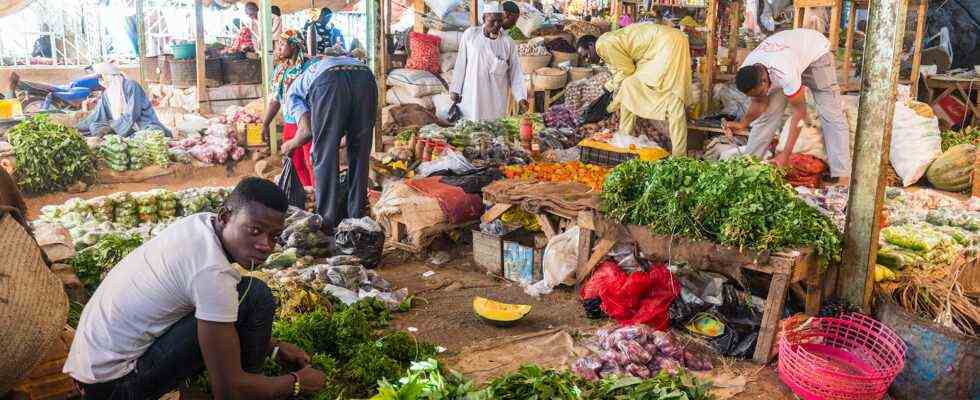Status: 07/27/2021 9:20 a.m.
In Rome, under UN leadership, experts and laypeople are brooding over how the food system can be reformed. Millions of people around the world are starving, for example because food is becoming more and more expensive – as in Niger.
In Agadez, in the center of the Sahel state Niger, there are initial protests against the rise in food prices. The 49-year-old Abdoulkarim Sidi belongs to the newly founded “Association against the expensive life in Agadez”. In his opinion, there are several reasons for the plight of consumers: “Niger’s population is young and has many children, families are poor. But prices are high and Niger imports almost everything it needs from outside.” In addition, there is now Corona. The pandemic hindered exchange between countries and domestic production.
In the United Nations Development Index, the desert state of Niger ranks last with its around 24 million inhabitants. Already today almost half of the children under five are malnourished. Reserves to cushion disasters such as droughts, war or even a pandemic are not only rarely available in Niger. When the prices of staple foods such as rice or cooking oil rise, the market can get loud.
“I try to discuss the prices with the dealers, but they don’t lower the prices,” complains Fatima Mohamed. “And with my small salary, I noticed that the oil, the tomatoes, the millet are just too expensive.” Fatima even has a job. She is a civil servant. But without drastic restrictions on eating, she says, she can no longer make a living. A healthy diet is hardly an issue anymore.
Government should regulate prices
How is an unemployed person doing? Ibrahim Salissou depends on his family to survive. He is already 30 years old: “All of us who have no jobs are appealing to the government to control and lower the prices of food. And also to ensure that the traders lower the prices.” These prices are often 15 to 40 percent above the pre-Corona level. This was determined by a commission of the West African countries for food security in June.
The people in Agadez see their government as having an obligation to provide affordable food. Many believe that the local market is out of control and that one is at the mercy of the wholesalers. Rafael Schneider is the deputy head of politics at German World Hunger Aid in Bonn, and he knows his way around Niger and the region. He considers the call for state price regulation to be justified: “Within a few months the hunger figures rose extremely, and this is partly due to the high prices and the low purchasing power in the pandemic.”
In this case, the government actually has to regulate the market and ensure that food is available locally at reasonable prices, demands Schneider. “That already says the right to food.”
Demands for quick action
In Niger today, one in two people is affected by food insecurity, twelve out of 24 million people. A year ago it was eight million. The country can hardly cope with this crisis on its own. Can the World Food Summit in Rome remedy this? “A summit alone will not improve the nutritional situation for many people,” says Schneider. “We have seen with climate change that many commitments are put on the back burner for a very long time until the disaster occurs at home. We should avoid that in the current food situation.”
Reliable promises and quick action are necessary, says the Welthungerhilfe expert, before even more people slide into the vicious circle of poverty and hunger.
When food becomes too expensive – the example of Niger
Stefan Ehlert, ARD Rabat, July 26th, 2021 4:58 p.m.

